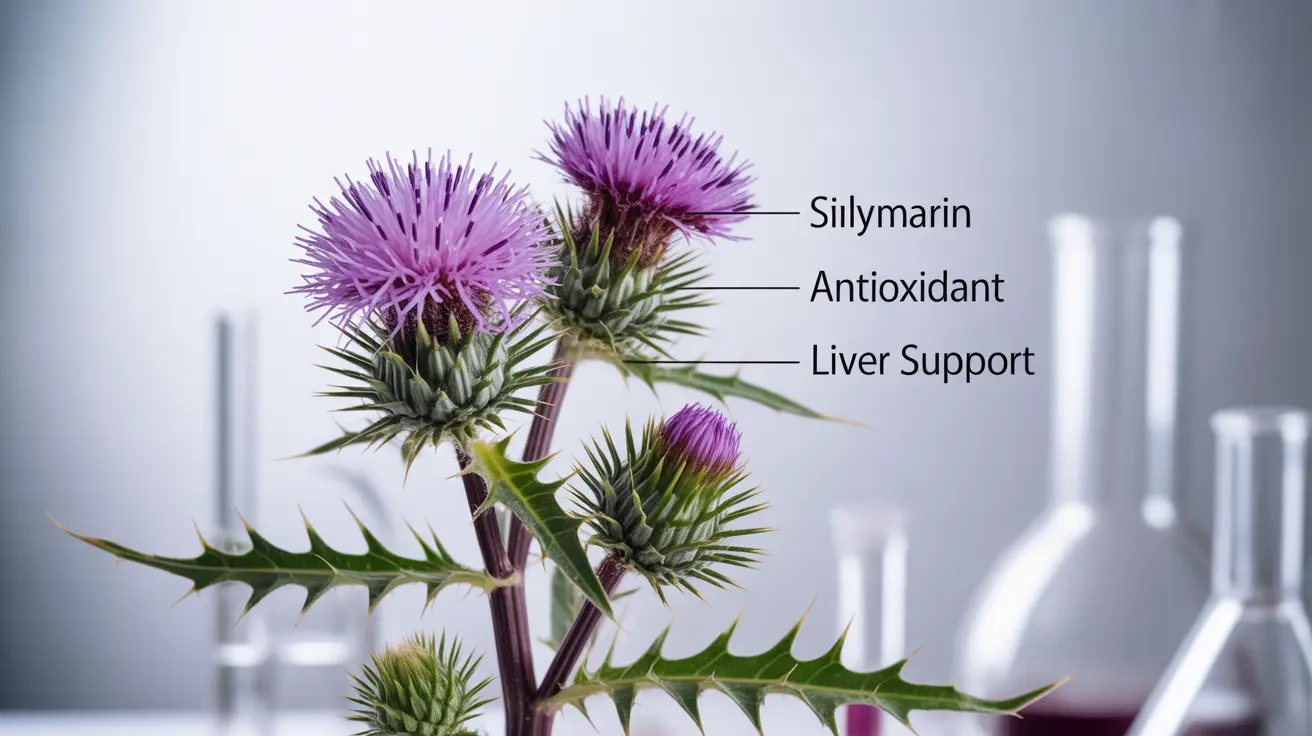For centuries, milk thistle has been touted as a natural remedy for various liver-related conditions, including the dreaded morning-after effects of alcohol consumption. As more people seek natural solutions for hangover relief, understanding the potential benefits and limitations of milk thistle becomes increasingly important.
This comprehensive guide examines the scientific evidence behind milk thistle's role in hangover prevention and treatment, its effects on liver health, and what you need to know before using this supplement.
Understanding Milk Thistle and Its Active Compounds
Milk thistle (Silybum marianum) contains a group of active compounds called silymarin, which are known for their antioxidant and anti-inflammatory properties. The main component, silybin, is particularly noted for its potential liver-protective effects.
How Milk Thistle May Help with Hangovers
Liver Protection Mechanisms
Milk thistle works primarily by supporting the liver's natural detoxification processes. It may help protect liver cells from damage caused by alcohol metabolism and promote the production of new liver cells. This support could potentially aid in processing alcohol's toxic byproducts more efficiently.
Antioxidant Effects
The antioxidant properties of milk thistle can help combat oxidative stress caused by alcohol consumption. This may reduce some of the inflammatory responses associated with hangover symptoms.
Scientific Evidence for Hangover Prevention
While traditional use supports milk thistle's benefits, scientific research specifically focusing on hangover prevention shows mixed results. Some studies indicate potential benefits for liver function, but direct evidence for hangover prevention remains limited.
Proper Usage and Dosage
The typical recommended dosage of milk thistle extract ranges from 150-400mg per day when taken as a supplement. However, timing is crucial when using it for hangover prevention. Taking it before alcohol consumption may offer better protective effects than waiting until symptoms begin.
Safety Considerations and Limitations
While milk thistle is generally considered safe for most people, it's important to understand its limitations and potential interactions. Some individuals may experience mild side effects such as digestive issues or allergic reactions.
Additional Hangover Prevention Strategies
For optimal results, combine milk thistle with other proven hangover prevention methods:
- Drink water between alcoholic beverages
- Eat a substantial meal before drinking
- Choose lighter-colored alcoholic beverages
- Get adequate sleep
- Maintain electrolyte balance
Frequently Asked Questions
Does milk thistle help prevent or cure hangover symptoms like headache and fatigue? While milk thistle may help support liver function during alcohol metabolism, there isn't conclusive scientific evidence that it directly prevents or cures hangover symptoms. It may offer some protective benefits when taken before drinking.
How does milk thistle support liver health, and can it protect against alcohol-related liver damage? Milk thistle contains silymarin, which has antioxidant and anti-inflammatory properties that may help protect liver cells from damage. It may also stimulate the production of new liver cells and reduce inflammation associated with alcohol consumption.
What are the potential side effects and safety concerns of taking milk thistle supplements? Most people tolerate milk thistle well, but some may experience mild side effects including stomach upset, diarrhea, or allergic reactions. People with hormone-sensitive conditions should consult healthcare providers before use.
Can milk thistle reduce the toxic effects of alcohol, such as acetaldehyde buildup during a hangover? Research suggests milk thistle may help the liver process toxins more efficiently, including acetaldehyde from alcohol metabolism. However, it cannot completely prevent toxic buildup from excessive drinking.
What natural methods are recommended to prevent or reduce hangover symptoms besides milk thistle? Effective natural hangover prevention methods include staying hydrated, eating before drinking, pacing alcohol consumption, choosing lighter-colored drinks, getting adequate sleep, and maintaining proper nutrition and electrolyte balance.
Remember, while milk thistle shows promise for supporting liver health, it should not be relied upon as a sole solution for preventing or treating hangovers. The most effective approach is moderate alcohol consumption combined with healthy lifestyle practices.




